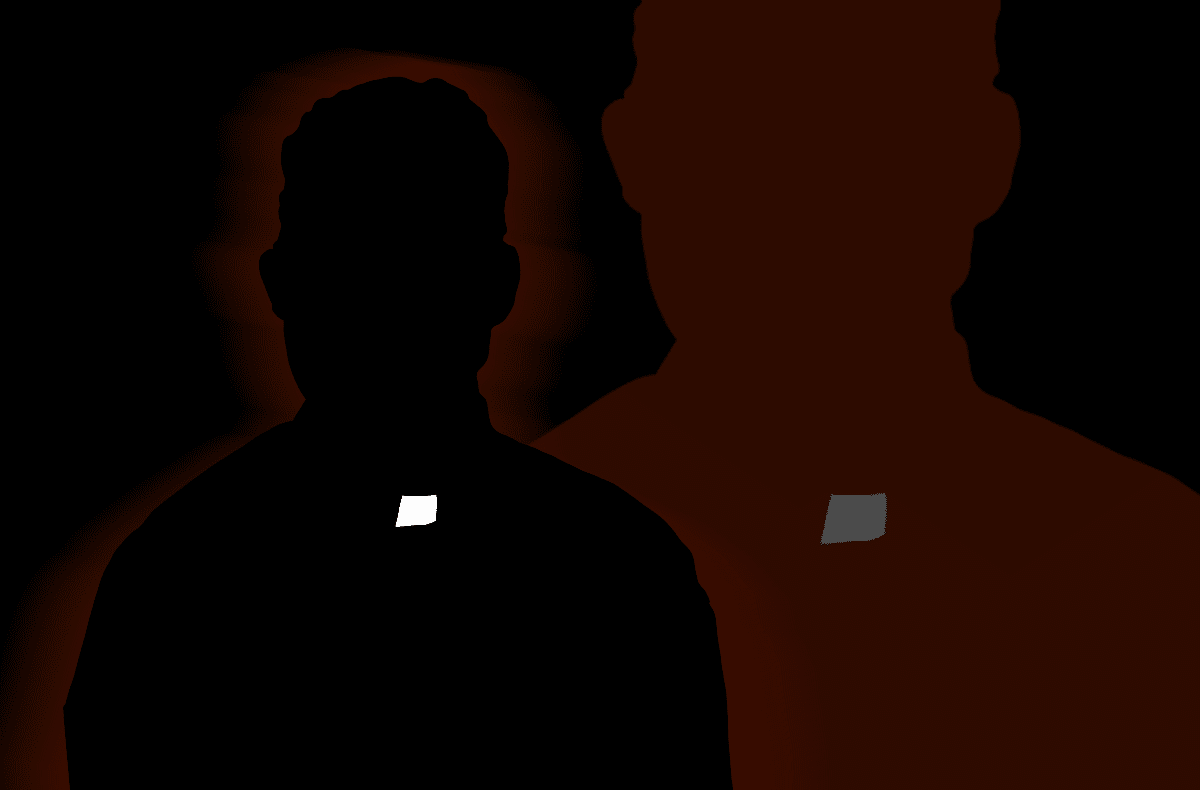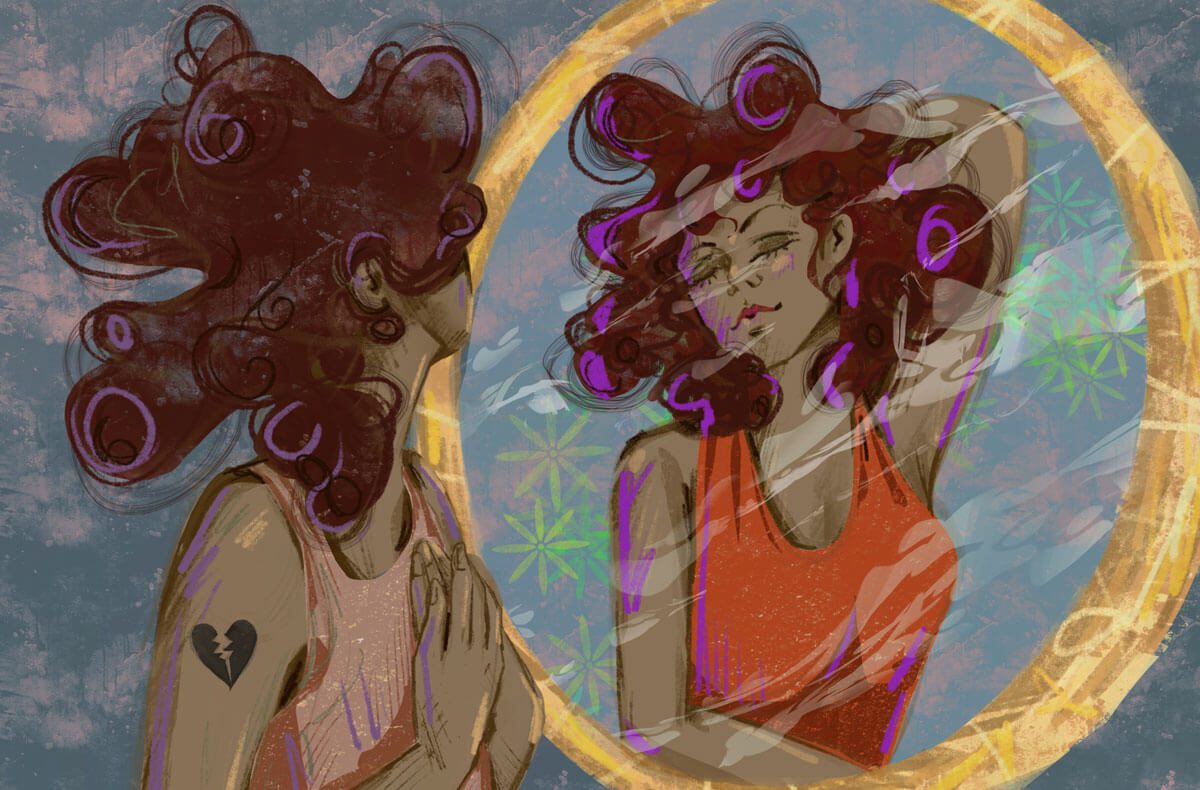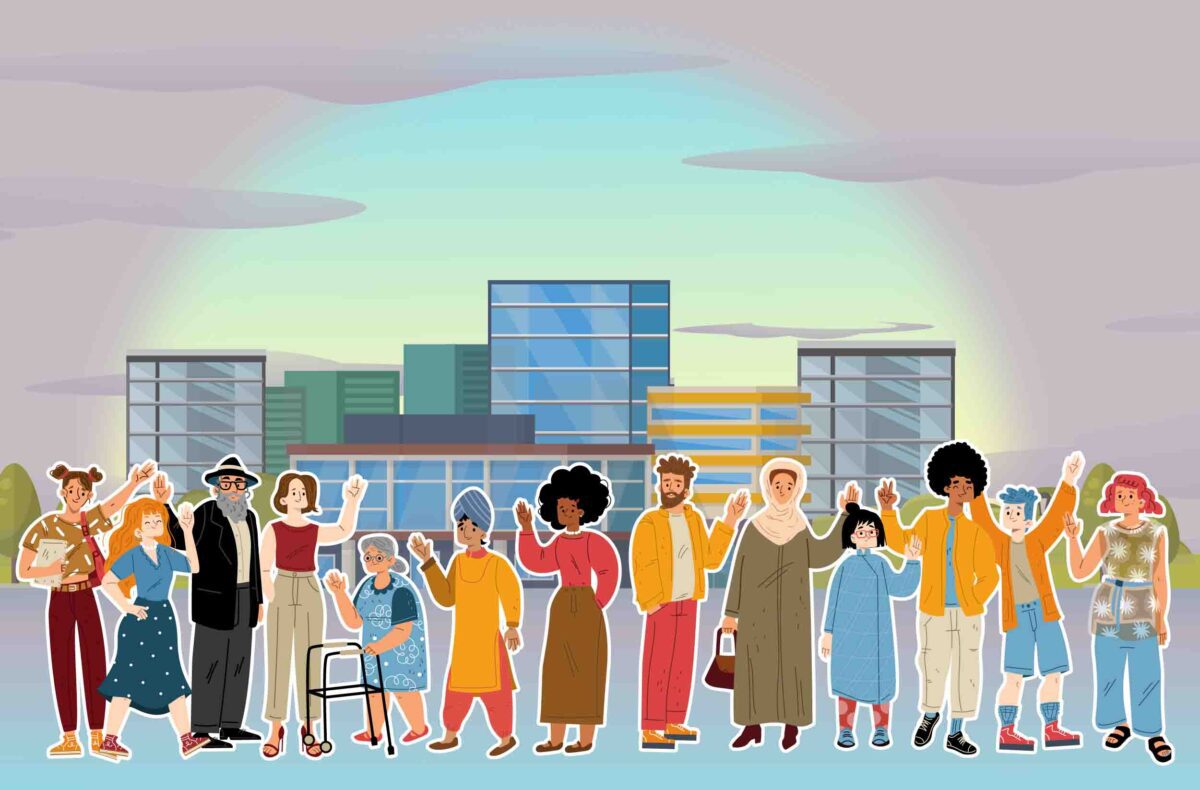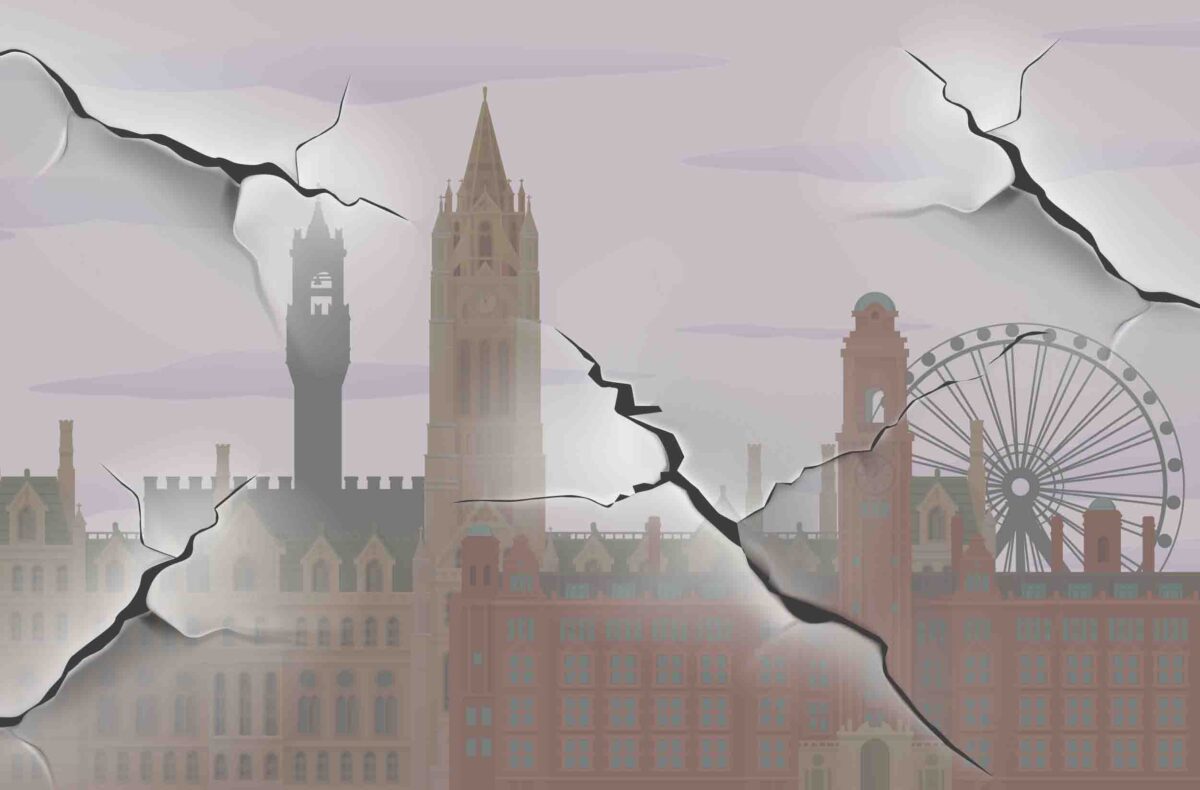
Illustration by Nikki Muller
It’s only been a week since my partner’s passing…my thoughts won’t settle. Confusion drifts into panic, and at some point, numbness. I know I’m not unfeeling; in fact, I am overwhelmed with emotion. Emotion leaks out of my eyes and body in gallons—lost in large, salty waves. Drowning, I find it impossible to breathe… I hold my breath.
I’d been invited for tea at the vicarage. The vicar presiding over the funeral had requested to meet me to discuss Jesse and the service arrangements.
On leaving the cottage to embark on the short walk up to the Vicarage, I glance in the mirror. I can barely see my eyes, I look so lost. The sight of myself makes me feel sad; I well up again. I want to wear my sunglasses; instead, I put on a baseball cap to hide behind. It’s cold, but a few rays of sunshine manage to escape the languid clouds. I have no idea what to expect. I’ve never done this, but for some reason, I have a feeling that I should know what to do… why?
After Jesse passed, there was no more tea in bed. Instead, I woke every morning only to be welcomed with a feeling of dread in my chest and stomach… like when you suddenly remember you’ve forgotten something really important. “Ah…he’s not here, he’s dead.” At first, I didn’t want to wake up… until I found it was easier not to sleep.
I arrive at the vicarage door and knock. It takes a moment for the door to open, and there, with sparkling, watery blue eyes, the vicar welcomes me in. He’s not tall, but his frame is solid, topped with a silvery grey crown.
“Come in, you must be cold.” I’m not.
He takes my hands and rubs them between his for a second, in a bid to warm them up. After taking my coat, he offers me tea. I watch him as he prepares a pot of tea and places it on a tray next to a plate full of luxury, foil-wrapped biscuits. I follow him into the drawing room, where he offers me a seat on the sofa next to him.
Everything in the vicarage is what you might expect: it’s a picturesque building filled with ornate wooden furniture, covered with an aged, yet timeless, floral pattern. Silverware, portraits, and porcelain are on display. We talk. He talks. He is a widower, 66 years old. He can relate to my loss. I begin to open up and relay different stories about how Jesse and I met, fell in love, broke up, grew up, reunited, traveled, and some bits in between… I want to make sure the vicar will do him justice.
However, something strange occurs. Whilst he’s talking, I select a biscuit. On biting into it, I find the flavor so horrible that my mouth rejects it. I apologetically rewrap it and place it on my saucer. Then, whilst I’m talking, the vicar takes my rejected biscuit and eats it… My brain registers this, but does not compute its meaning until I get up to leave.
The vicar holds my face and smudges my tears across my cheeks with his thumbs. He then looks deeply at my eyes and draws his face to mine… I’m frozen. Paralyzed with dread, fear, confusion. Help!
At which point his forehead hits the peak of my baseball cap—Jesse’s baseball cap.
He tries again. Again, the cap blocks him and prevents any physical transgression. I extract myself and leave—thanking him. Really, I was thanking God (and Jesse) for that cap, on that day.
I decided not to mention it. How could I possibly tell anyone that story? I don’t want him to lead the funeral service! I don’t want him anywhere near me, my children, or Jesse. I feel confused, shocked, dirty, hurt.
The day of the funeral arrives. The house is bustling—nervous. Flowers, vases, hushed voices, phone calls. All in black. I don’t want to get up; “just don’t move, Ali.” My heart feels heavy with the knowledge that that man is going to bury Jesse. My focus remains blurred the whole day; the only clear thing I see is a black butterfly emerging from under the pew where I sit. It flutters up above me, circles and lands on Jesse’s coffin. I can’t take my eyes off it. I don’t listen to the priest. I can’t register Anne’s beautiful eulogy, I don’t hear anyone’s condolences, I see only mouths moving. My heart is so heavy in betrayal. I feel that God has betrayed me in more ways than one. Why?
After the funeral, I start to get random messages from the vicar. The dread worsens. My phone remains unanswered most of the time… One night a few months later, around 9pm my doorbell rings. No one is expected—my children and I are in our nightwear, ready for bed. It’s the vicar. He lives at least an hour’s drive away.
Why is he here?! Why is he doing this? What did I do to make him behave this way? He’s said “he can always see me”… is he watching the house?! I don’t feel safe inside or out. I don’t want to answer my phone to him. I apologize, explain that I can’t let him in as I need to put the girls to bed, and close the door.
This can’t go on, I now feel scared; I’m exhausted avoiding him. I find myself hiding when visiting Jesse: yet there is a clear view of the vicarage from his grave. He has expressed a desire to take care of the girls and I. Holding this is killing me.
Finally, I divulge this information and share the shameful story to others in my family, causing some degree of justifiable upset and rage. I was informed that my father-in-law Michael—my guardian angel—who is normally very temperate and calm, marched up to the vicarage and gave the vicar a good talking to. Michael was a man of great character in anyone’s estimation, old school, a fine journalist and ex-Navy. I can only imagine his appropriately delivered rage at the vicar. I never asked.
Looking back, I realize that we often attract the energy we carry with us, whether we choose to recognize it or not. When I carry a certain energy with me, it is likely I will attract that energy, good or bad. When my partner Jesse passed so suddenly, my body went into shock, my brain shut down, my heart broke. Honestly, whilst this might sound bizarre, all I wanted to do was have sex. Apparently this is a natural physical response to death—it’s part of the need to feel alive. I felt empty, void, lost, all my needs unmet. This “sexual urge,” I believe, was there to reconnect me back to life. At the time this urge was shrouded in loss, guilt and a shame I didn’t understand.
Could the vicar have had the same experience since losing his wife? Could my energy have inadvertently led this priest, this widower, this man to believe that he had found someone to soothe his own pain? Or was this vicar merely predatory? Preying on another’s loss and abusing his trusted position, with no official accountability…
Many years later I was informed that my in-laws had discussed taking it further—reporting the Vicar etc. but, at the time, couldn’t face what that would involve for all of us. To them there was something “pathetic” about him; suspecting his guilt and shame (he was never able to look them in the eye again) may have shortened his sad little life.
Unfortunately, my story does not appear to be unique. In recent months, the Church of England has been reviewing historic cases of abuse. In a report by the IICSA (Independent Inquiry on Child Sexual Abuse 2020) it is notable, considering the basis of Church’s mission is emotional, physical, and spiritual well-being, the belief that the Church protected it’s own reputation over and above its “explicit moral purpose.” In a culture of defense and clericalism, it is remarkable that this report shares that there were 2,500 safeguarding concerns in 2018 alone, and only 390 convictions since 1940-2018. The moral authority of clergy is not beyond reproach. Priests are human; humans are fallible. Church avoidance to tackle this issue effectively has, in my mind, created a hostile environment for the victims (clergy and congregation) who carry this guilt and shame.
Let’s hope they do the work thoroughly and begin to support both the priests and the victims to find healthier ways to connect, heal, and possibly “free” their souls. Perhaps investment in more accessible training and community programs might help to support continuously reinforcing safeguarding in all the settings it is needed. It is not only children who are at risk, but any vulnerable soul facing the burdens of life… and death.
Filed under:
Tags mentioned:
#metoo Grief Mental health Religion Social Justice Society United Kingdom

